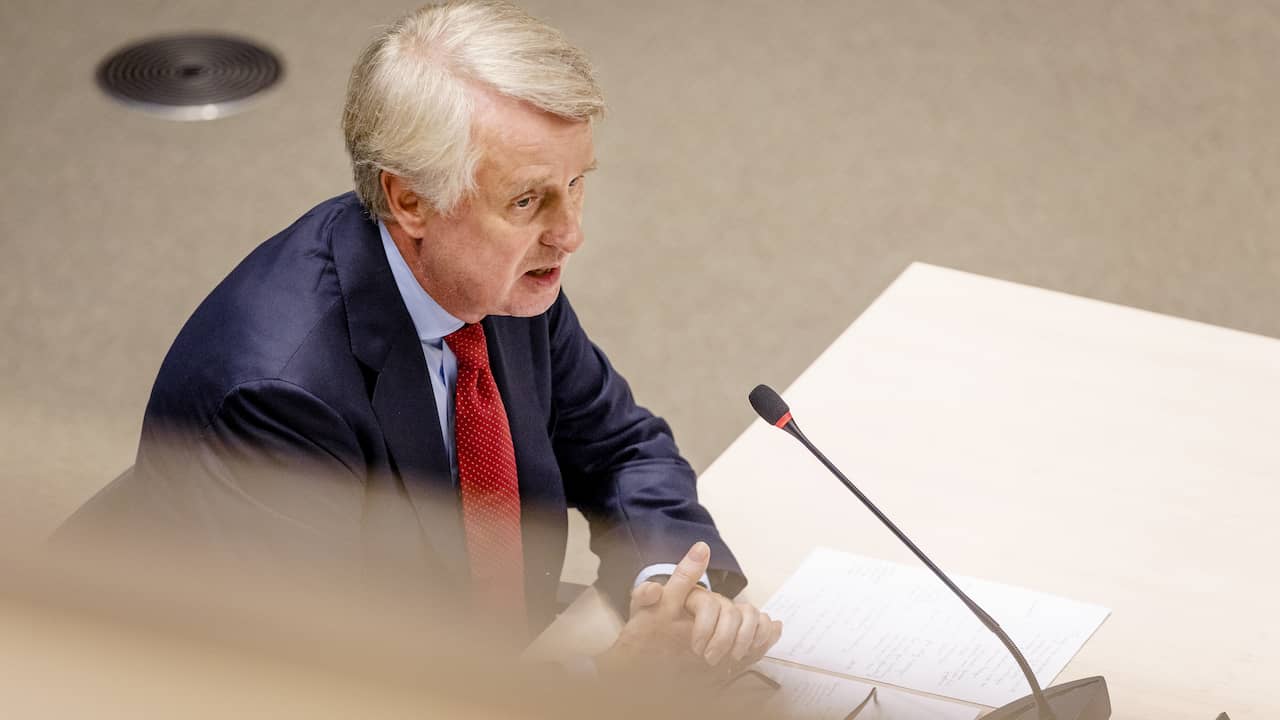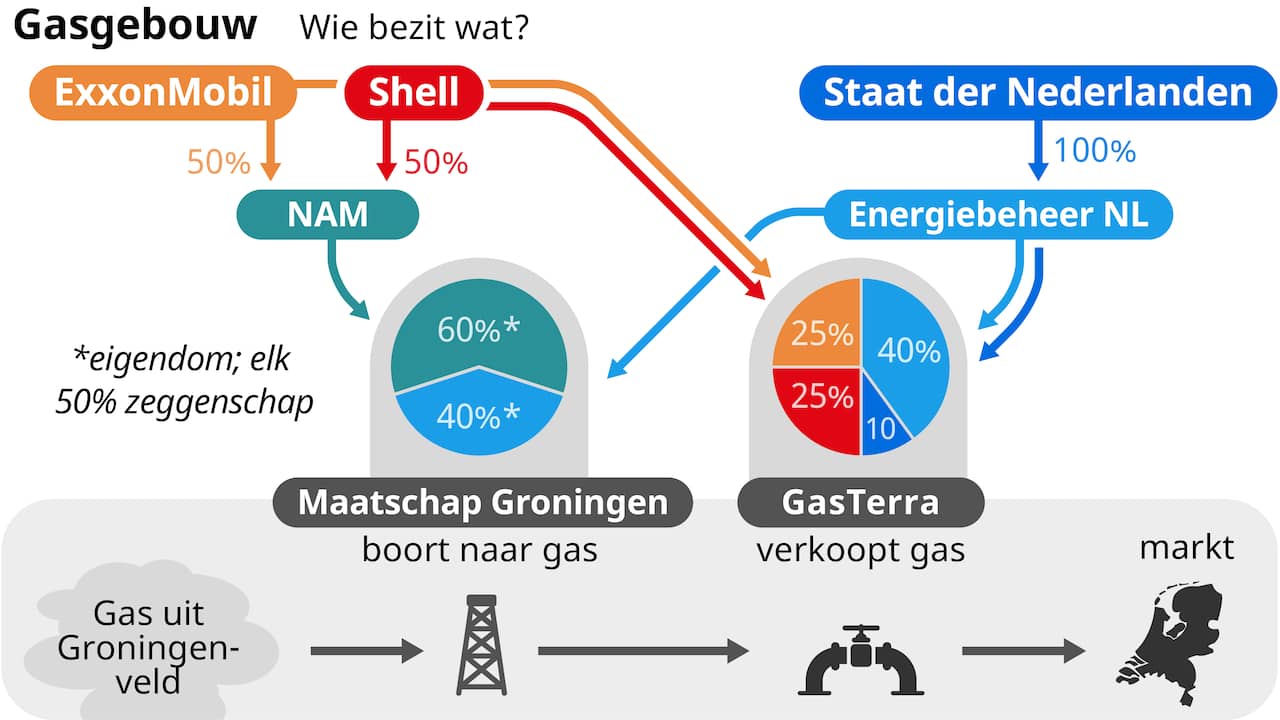A 2015 Shell note shows that the oil firm experienced uncertainties about a reduction in gas extraction at the time. The observe states, between other items, that if a reduction in creation ended up presented as a basic safety measure, there would be “no end”. The note does not make inroads with former CEO Dick Benschop himself, as it turned out Thursday during his interrogation by the commission of inquiry.
The note was organized by a Shell worker in April 2015 in planning for the once-a-year evening meal with the ministry leaders. The concept with the name Swamp without anchors is tackled to then CEO Benschop.
Not only has the previous Shell CEO forgotten the memo, but he also has “no memory” of the meal.
The note states that if the degree of protection of supply is managed, 300 to 500 billion cubic meters a lot less Groningen gasoline will be developed in the extended operate. With a decline of 50-125 billion euros as a end result. Even so, in accordance to Benschop, it is not genuine that Shell did not want a reduction in creation at the time.
“The couple of billion cubic meters isn’t dollars, is it?”
In accordance to Benschop, revenue did not play an critical part within Shell at the time. Not even in December 2012. Shell was of the feeling that a momentary creation limitation was not valuable.
A couple months earlier, the regulator furnished new info. Until eventually then, earthquakes in the fuel extraction region have been viewed as a destruction dilemma. With the regulator’s report, this photo has shifted to a most likely critical protection possibility.
In January 2013, the regulator recommended the minister to minimize gas extraction. But this information is not adopted. Nederlandse Aardolie Maatschappij (NAM) and shareholder Shell, among the others, are convinced that a limited-term reduction in production has no outcome on security. The tremors would appear in any case.
“Did money interests engage in a job at the time?” The committee questioned Benschop. It wasn’t like that, he replies. Suppose a reduction had been implemented, according to the previous Shell boss, this would not have been a considerable reduction. “The couple of billion cubic meters isn’t income, is it?” Suggests Benschop.
License to function it was the most critical detail to Shell
In the interrogation with Benschop, the so-identified as license to operate. In other phrases, aid for gasoline extraction.
One particular issue is incredibly crystal clear to Benschop. The determination not to minimize gas extraction in 2013 and even to enable extra extraction was not excellent for supporting gasoline extraction between the folks of Groningen.
Benschop regrets that he did not question himself at that time what room there was to decrease gasoline creation. The amplified creation in 2013, exactly the year following the regulatory authority’s feeling, is nonetheless a single of the sore details in the Groningen gasoline file.
It was a “missed chance” to preserve help and a “phony begin” to offer with earthquakes, says Benschop. He would have liked to see a distinct solution.
ExxonMobil CEO refuses to testify
We know Benschop currently as the head of Schiphol, but he was CEO of Shell Nederland in between 2011 and 2015. He is 1 of the protagonists of Gasgebouw, the title of the collaboration amongst the state and the oil firms Shell and ExxonMobil.
As CEO of Shell, Benschop sat at the table for 5 several years at Maatschap Groningen and the buying and selling company GasTerra. In one particular place, the gas extraction plan is determined at that time. On the other hand, just about the exact individuals make conclusions about promoting gas.
Like Shell’s Benschop, ExxonMobil CEO Joost van Roost also participates in these discussions. He refuses to testify. The commission of inquiry can’t oblige him, as he is a Belgian citizen.
Having said that, Benschop gives the committee a compact overview of ExxonMobil’s mindset. The business also wanted to target on utmost gasoline manufacturing in the summertime of 2013, according to its tale. Shell consequently considered it best that GasTerra did not make much too several income commitments prior to future winter. Benschop claimed he failed to want to place the minister in a tricky deal if he made the decision to lower manufacturing.



